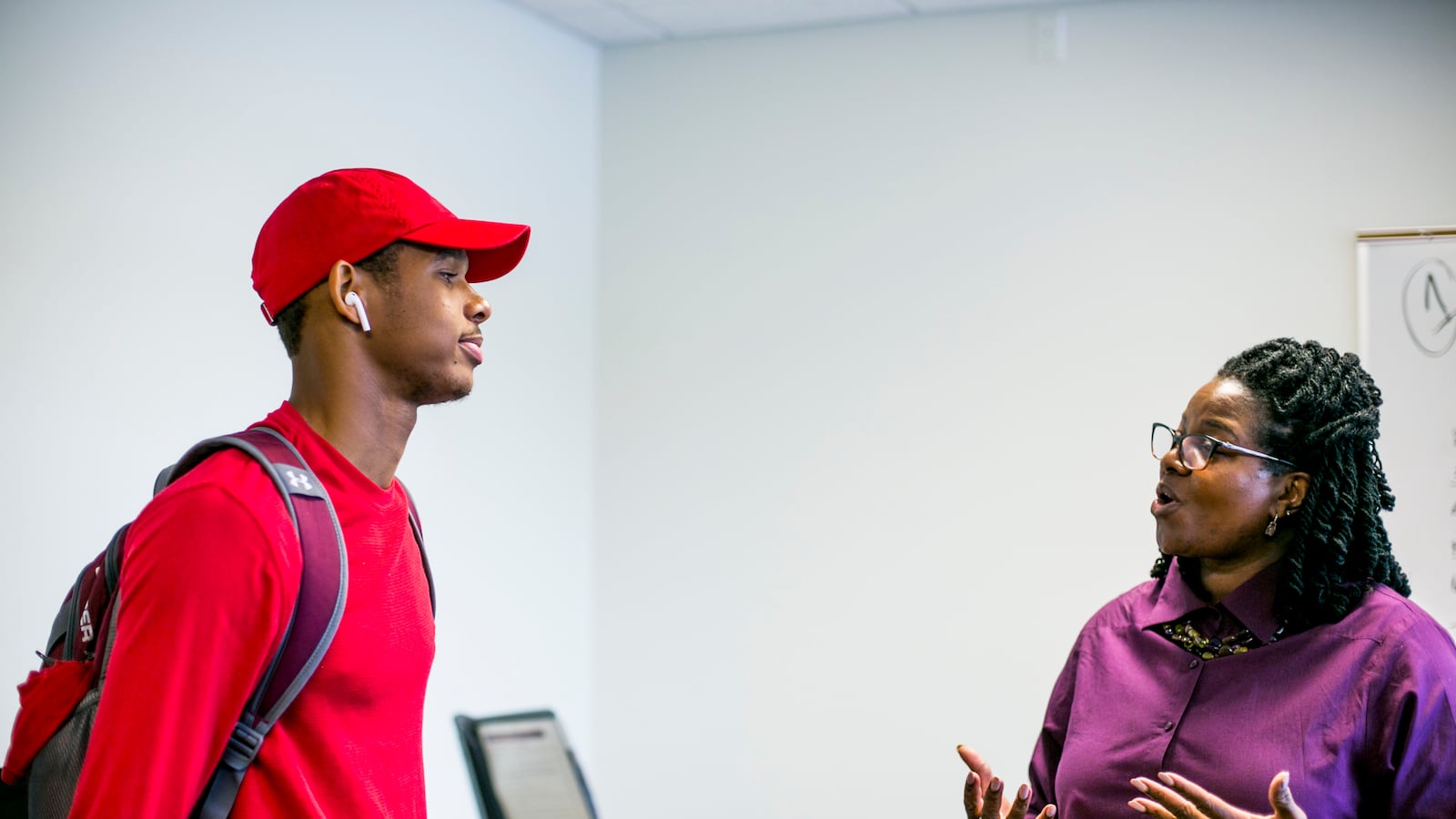High school needs to be “harder.” Schools need to get rid of worksheets. And high school classes should be more like college classes.
These comments shed light on some of the struggles Detroit students face when they get to college. The insights come from a new Michigan Future report based on the experiences of 133 students who graduated from two charter schools and one traditional public high school in Detroit from 2014 to 2017.
The report could provide a road map for high schools that want to better prepare their students to succeed in higher education, as well as the colleges they’re attending.
“What we’re doing is not working,” said Lou Glazer, president of Michigan Future, a nonprofit organization focused on education and economic development. “We need to understand why it’s not working and then do something about it.”
The report comes at a critical time. More and more research shows that economic mobility is strongly tied to earning a college degree. And while getting to and through college is a challenge for many students, it’s particularly difficult for students of color and students from low-income families.
Chalkbeat has been exploring these challenges this academic year as we follow a group of Detroit and Newark high school students through their first year of college.
The nonprofit organization worked with the Berman Foundation to launch a scholarship program to provide a small amount of funding for textbooks for students who shared their college grades and completed surveys about their experiences.
Students said they needed additional support in four primary areas:
- More rigorous coursework in high school to prepare for college-level work. Students said they weren’t just unprepared for the amount of work, but also “the intellectual challenge that they would be expected to participate in in college.” One had this message for school officials: “No more worksheets.”
- Help developing successful academic habits. Students reported spending about 10 hours a week studying and preparing for college classes, when the research suggests they should spend 30 hours a week. That likely is because of their outside responsibilities, including work, according to the report.
- Training in financial literacy, especially in understanding financial aid. For instance, students need help understanding how to set up bank accounts and credit cards and manage their finances responsibly.
- Better cultural preparation, especially for non-white students matriculating to predominantly white institutions. Students report struggling to adapt in these environments.
The surveys revealed that just 18% of the students were on track to graduate in four years, while 48% were on track to graduate in five years.
Those numbers, author Sarah Szurpicki says in the report, are worrisome because taking too long to accumulate credit can increase the risk of students dropping out or losing scholarships.
Students considered on track for graduation in four years have at least a 2.0 grade point average and have accumulated an average of 15 credits a semester. Those on track for a five-year graduation have at least a 2.0 GPA and have earned an average of 12 credits a semester.
Glazer said that while some high schools in the city and some colleges have strong programs in place to help students succeed, none is doing everything it could.
He suggested that high schools could better prepare students if they were as focused on and held accountable for the college success of their graduates as they are for standardized test results.
What’s missing in most high schools, Glazer said, is a mission that all teaching and curriculum from freshman year onward is designed to prepare students to earn a college degree. Schools in other parts of the nation have been successful by focusing on teaching and curriculum that prepare students for college.
“It’s in their DNA,” Glazer said.
Catch up on Chalkbeat’s Ready or Not series here.
To read the full report from Michigan Future, read below.


